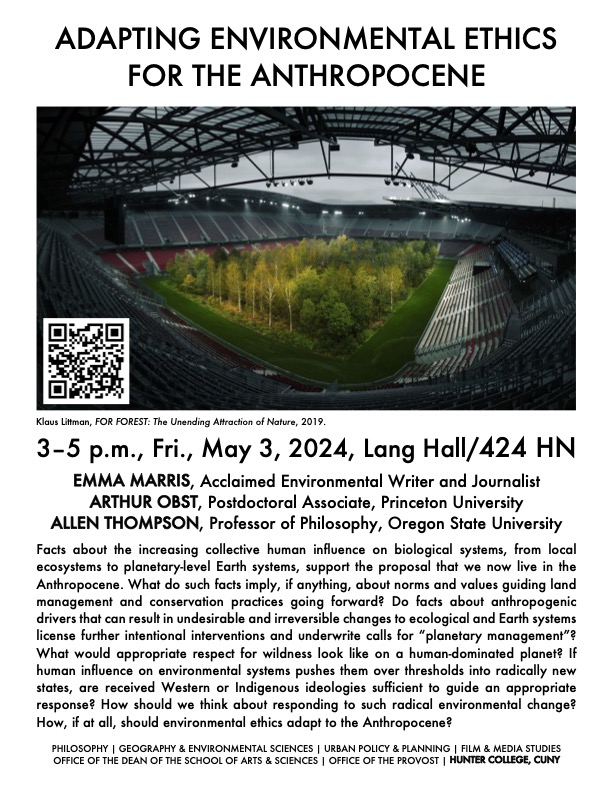This event will feature a thought-provoking panel discussion with sexual and reproductive justice experts on the value of the sexual and reproductive justice framework and how it can be applied to diverse stakeholders, settings, and contexts. Panelists will also highlight examples from around the world of momentum towards sexual and reproductive justice.
Event Information
Free and open to the public; registration is required for both in-person and online attendance. For additional information, please visit the event webpage. Please email Malia Maier at mm5352@cumc.columbia.edu with any questions. All in-person attendees must follow Columbia’s COVID-19 policies.
Hosted by the Global Health Justice and Governance Program at Columbia University.
A conference hosted by the Motherhood and Technology Working Group at the Center for the Study of Social Difference on the theme of “Conception and Its Discontents.”
Medical technologies have radically transformed the biological and social experience of motherhood. Advances in genomic and reproductive care, the circulation of novel kinship structures, the entrenchment of existing global networks of power and privilege, and the politics of contested bodily sites mark this emerging constellation.
Technological advancements have in particular impacted not just the understanding of conception, but the very process by which a human embryo is created, implanted, and matured. Egg freezing, embryo storage, IVF, and surrogacy afford women new freedoms in choosing when and how to become mothers, while also raising troubling questions about the pressures of capitalism and the extension of worklife, as well as the global inequalities present in the experience of motherhood. In addition, technologies have arisen allowing for unprecedented control over not just who becomes a mother, but what kind of embryo is allowed to be implanted and to grow. Technologies such as CRISPR and NIPT have re-introduced the question of eugenics, radically shifting the very epistemology of motherhood and what it means to be “expecting.” And contemporary abortion debates draw on technology in order to make arguments both for and against access, with imaging technologies being instrumentalized in the building of a sympathetic case for the unborn, and the very notion of a “heartbeat bill” reliant on the misreading of technologies for measuring fetal activity.
While these problems are urgent today, questions of conception and technology are by no means recent developments. The 18th century saw a flourishing of philosophical and scientific theories regarding the start of human life and its formation within the womb. Such theories relied on modern technologies, such as autopsy, to atomize and visualize the body. In the 19th and 20th centuries, eugenic medical science produced theories of reproductive difference between differing racial and social groups, leading to forced sterilization laws in both the US and in Germany. This long history of racializing the rhetoric of fertility and motherhood continues to influence political debates on immigration and demographic changes in the present.
Full conference details and schedule to come.
Please email disability@columbia.edu to request disability accommodations. Advance notice is necessary to arrange for some accessibility needs
Serving as a response to Aimé Césaire’s call for a universal filled with particularity from his infamous resignation from the French Communist Party in 1956, I focus on the role of culture for a project of universal emancipation. To do so, I follow Sylvia Wynter’s statement that the Négritude movement is an example of a universal and cultural project. Recalling Césaire’s words in “Return to My Native Land,” culture that serves universal emancipation must be “free of the desire to tame but familiar with the play of the world.” To this end, I develop a conception of culture that is both local and universal, that centers on the importance of what it means to be human, as life, as being, and as experience by reading culture as necessarily local, collective, disenchanted, and related to play.
Bio:
Elisabeth Paquette is Associate Professor of Comparative Literature at the University at Buffalo, SUNY. Her book, titled Universal Emancipation: Race beyond Badiou (University of Minnesota Press, 2020), engages French political theorist Alain Badiou’s discussion of Négritude and the Haitian Revolution to develop a nuanced critique of his theory of emancipation. Currently, she is working on a monograph on the writings of decolonial theorist Sylvia Wynter. She is also the Founder of the Feminist Decolonial Politics Workshop, which takes place annually during the summer.
Facts about the increasing collective human influence on biological systems, from local ecosystems to planetary-level Earth systems, support the proposal that we now live in the Anthropocene. What do such facts imply, if anything, about norms and values guiding land management and conservation practices going forward? Do facts about anthropogenic drivers that can result in undesirable and irreversible changes to ecological and Earth systems license further intentional interventions and underwrite calls for “planetary management”? What would appropriate respect for wildness look like on a human-dominated planet? If human influence on environmental systems pushes them over thresholds into radically new states, are received Western or Indigenous ideologies sufficient to guide an appropriate response? How should we think about responding to such radical environmental change? How, if at all, should environmental ethics adapt to the Anthropocene?
